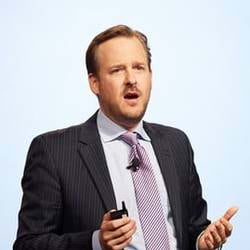Agenda
Predictive Analytics World London
etc.venues, 155 Bishopsgate, 28-29 October, 2015
Predictive Analytics World for Business - London - Day 1 - Wednesday, 28th October 2015
Television impacts our daily lives. It provides news, entertainment and education. And, with minute-by-minute information on TV ratings and multi-billion-euro income streams from advertising, it is a real Big Data decision problem that requires sophisticated Analytics. TV viewers must be predicted for each 30 second timeslot, normally days in advance, in order to schedule the right advertisement. However, viewership patterns vary by demographic of target audiences, from young adults to elderly couples and the affluent to the unemployed, across geo-regions from rainy North to sunny South, with TV programme schedules and weather driving viewership patterns over time. Without analytical methods, comply decisions quickly become inefficient. We present a case-study from a leading private UK TV channel where we employed analytics to support decision making.
Attendees will learn:
- How a time series approach helped to make sense of terabytes of data
- How to explore viewer behaviour using time series clustering in Descriptive Analytics
- How to forecast future viewers using k-nearest neighbours in Predictive Analytics
- How to optimise advertising scheduling across changing variance in Prescriptive Analytics
Today we live in a world typified with an abundance of available data, but a scarcity of data scientists to unlock accurate and reliable results. Organisations that harness the power of IoT, big data and real-time analytics create new avenues to innovation and huge advantage.
Dell Software will be sharing key innovations in the field of advanced analytics that address:
- How to adapt to highly diverse data environments.
- How to make analytics a tool to be used by all members of your organisation.
- How to share models from data scientists globally that drive mankind’s discoveries, wealth and well-being.
· Forecast Improvement: Forecast Accuracy is a Key Performance Indicator (KPI) for the supply chain. Accurately predicting future demand allow the supply chain to consistently supply customers without holding large amounts of stock to buffer unexpected demand. Improving the KPI was a significant change journey for Shell LSC.
· Customer Cross-Sell and Up-Sell: Working with a number of other Shell Analytics Teams the LSC Analytics Teams tacked the challenge of making appropriate cross-sell and up-sell recommendations based on customer sales – as well as how to cluster these customers.
· Pattern Recognition in Stock Holding: Tackling the issue of errors in stock management the team looked at computer pattern recognition within the time series. Detecting human errors as well as improving the time-to-opportunity ratio were key value drivers.

Dinner with strangers:
meet your fellow attendees.
See the registration desk for more information
Predictive Analytics World for Business - London - Day 2 - Thursday, 29th October 2015
See the Predictive Analytics World London 2014 agenda here
Workshops – Friday, 30 October, 2015
4.30 pm
Workshop:
The Best and the Worst of Predictive Analytics: Predictive Modelling Methods and Common Data Mining Mistakes
John Elder, Ph.D., CEO and Founder
Elder Research, Inc.


 etc.venues, 200 Aldersgate,
etc.venues, 200 Aldersgate,




















